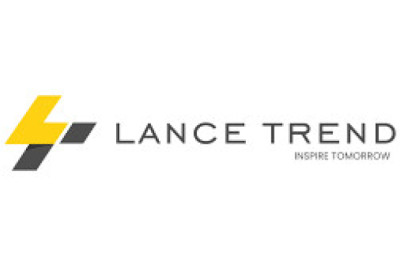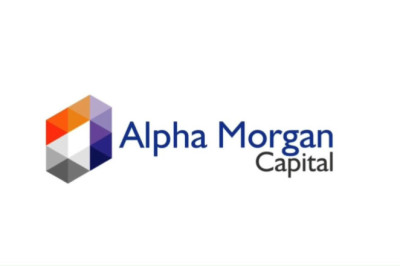Introduction to Clean Voice AI ToolsVoice AI technology has become a game-changer in our digital world, offering incredible versatility and efficiency in various applications. Clean Voice AI tools, specifically, have emerged as a leading solution in enhancing voice interactions by providing clear, natural-sounding, and accurate voice outputs. But what exactly are these tools, and why are they important? Let's dive in.
Understanding the Basics of Clean Voice AIAt its core, Clean Voice AI operates on sophisticated algorithms that process and interpret human speech. This technology not only recognizes words but also understands nuances and context, making interactions more human-like. The key features that set Clean Voice AI apart include its ability to reduce background noise, understand different accents, and provide real-time voice translation.
Getting Started with Clean Voice AI ToolsChoosing the right Clean Voice AI tool is crucial. Factors like user interface, language support, and compatibility with other applications should be considered. Once you've selected a tool, setting it up involves a straightforward installation process and, in some cases, a calibration phase to adapt to your specific voice and accent.
Practical Applications of Clean Voice AIIn the realm of business, Clean Voice AI enhances customer service interactions and streamlines communication. For personal use, it offers convenience in tasks like dictating texts or controlling smart home devices. The versatility of these tools is what makes them so valuable across different sectors.
Advanced Features and TechniquesMany Clean Voice AI tools come with customization options, allowing users to tailor the experience to their needs. Integration with other software, like CRM systems or email clients, further expands their utility.
Troubleshooting Common IssuesTechnical glitches can occur, and knowing how to address them is important. This might involve recalibrating the tool or checking for updates. Another common issue is improving voice recognition accuracy, which can be enhanced by speaking clearly and reducing background noise.
Maintaining Privacy and SecurityWith any AI tool, data protection is paramount. Clean Voice AI tools usually have robust security measures in place to protect user data. However, users should be aware of their privacy settings and understand how their data is being used.
Future Trends in Clean Voice AIThe future of Clean Voice AI is exciting, with predictions of more natural interactions and wider applications in various industries. We might see these tools becoming even more integrated into our daily lives, offering more personalized and efficient experiences.
User Experiences and Case StudiesUser testimonials and case studies demonstrate the real-world impact of Clean Voice AI. These stories highlight the tool's effectiveness in different scenarios, from improving accessibility for individuals with disabilities to enhancing customer service in businesses.
Comparing Clean Voice AI to Traditional MethodsWhile Clean Voice AI offers numerous advantages, like speed and efficiency, it's also worth considering its limitations compared to traditional methods. For some, the personal touch of human interaction remains irreplaceable.
Cost and Accessibility of Clean Voice AI ToolsThe pricing of Clean Voice AI tools varies, with some offering free basic versions and others requiring a subscription. Accessibility is generally high, with many tools available on various platforms and devices.
Integrating Clean Voice AI in Daily LifeIncorporating Clean Voice AI into daily routines can lead to significant lifestyle changes. The convenience and time-saving aspects are notable, often leading to long-term benefits in both personal and professional spheres.
Expert Tips for Maximizing EfficiencyProfessionals in the field offer valuable advice for getting the most out of Clean Voice AI. This includes tips like regularly updating the software and utilizing all available features to fully harness its potential.
Challenges and Limitations of Clean Voice AIDespite its advancements, Clean Voice AI still faces technological limitations and challenges, such as dealing with highly colloquial language or complex accents. Overcoming these challenges is a focus for future development.
Conclusion and Future OutlookClean Voice AI tools represent a significant step forward in making our interactions with technology more natural and efficient. As these tools evolve, we can expect them to become even more integrated into our daily lives, changing the way we communicate and interact with our digital world.
views
In a world increasingly reliant on digital technologies, the demand for cybersecurity experts has reached unprecedented heights. Opportunities for Cybersecurity Experts have expanded across industries as businesses and individuals alike grapple with the escalating threat landscape. In this article, we will delve into the various aspects of the cybersecurity domain, exploring the skills required, educational paths, job opportunities, challenges, and the promising future that awaits cybersecurity professionals.
I. Introduction
Definition of Cybersecurity
Cybersecurity involves the practice of protecting computer systems, networks, and data from unauthorized access, attacks, and damage.
Growing Importance
As our dependence on technology deepens, the importance of cybersecurity has surged, making it a critical component of organizational and personal security strategies.
Demand for Cybersecurity Experts
The escalating frequency and sophistication of cyber threats have led to an increased demand for skilled professionals capable of safeguarding digital assets.
II. Current Cybersecurity Landscape
Evolving Threats
The cybersecurity landscape is dynamic, with threats constantly evolving, from malware and phishing attacks to sophisticated ransomware campaigns.
High-Profile Cyber Attacks
Recent high-profile cyber attacks on major corporations highlight the vulnerability of digital infrastructure and the need for robust cybersecurity measures.
Impact on Businesses and Individuals
Cybersecurity breaches can have severe consequences, including financial losses, reputational damage, and compromise of sensitive information.
III. Skills Required for Cybersecurity Experts
Technical Proficiency
Cybersecurity experts must possess technical skills in areas such as network security, penetration testing, and incident response.
Analytical Skills
The ability to analyze complex data sets and identify potential vulnerabilities is crucial for effective cybersecurity.
Continuous Learning
Given the rapidly evolving nature of cyber threats, professionals need to engage in continuous learning to stay ahead of emerging challenges.
IV. Educational Paths to Become a Cybersecurity Expert
Traditional Degrees
Many cybersecurity experts start with traditional degrees in computer science, information technology, or cybersecurity.
Certifications
Industry-recognized certifications, such as Certified Information Systems Security Professional (CISSP) or Certified Ethical Hacker (CEH), validate expertise and enhance employability.
Online Courses and Bootcamps
Online courses and bootcamps offer a flexible and accessible route to gaining cybersecurity skills, allowing individuals to learn at their own pace.
V. Job Opportunities in Cybersecurity
Variety of Roles
Cybersecurity professionals can explore various roles, including ethical hacking, security analysis, and security architecture.
Industry Demand
The increasing digitization of industries has led to a surge in demand for cybersecurity experts across sectors.
Salary and Benefits
Competitive salaries and benefits make cybersecurity an attractive career choice, reflecting the industry's recognition of the value of skilled professionals.
VI. Challenges in the Cybersecurity Field
Rapidly Changing Landscape
The fast-paced evolution of technology poses challenges in keeping up with the latest threats and security solutions.
Shortage of Skilled Professionals
The demand for cybersecurity experts surpasses the current supply, resulting in a skills shortage that organizations struggle to address.
Ethical Dilemmas
Cybersecurity professionals often face ethical dilemmas, such as balancing privacy concerns with the need for robust security measures.
VII. How to Break Into the Cybersecurity Industry
Building a Strong Foundation
Aspiring professionals should build a solid foundation in networking, programming, and system administration.
Networking and Internships
Networking with industry professionals and securing internships provide valuable hands-on experience and open doors to opportunities.
Personal Projects and Portfolios
Creating personal projects and building a portfolio showcase practical skills and demonstrate commitment to the field.
VIII. Trends and Innovations in Cybersecurity
Artificial Intelligence
The integration of artificial intelligence in cybersecurity enhances threat detection and response capabilities.
Internet of Things (IoT)
As IoT devices proliferate, securing these interconnected devices becomes a critical focus for cybersecurity experts.
Cloud Security
With the widespread adoption of cloud services, ensuring the security of data stored in the cloud is paramount.
IX. Importance of Soft Skills in Cybersecurity
Communication Skills
Effective communication is vital for translating complex technical information into understandable insights for non-technical stakeholders.
Problem-Solving
Cybersecurity experts must possess strong problem-solving skills to navigate and resolve complex security issues.
Team Collaboration
Collaboration within cybersecurity teams and across departments is essential for a holistic and effective security strategy.
X. Cybersecurity in Different Industries
Healthcare
The healthcare sector faces unique cybersecurity challenges, including the protection of sensitive patient data and medical devices.
Finance
Financial institutions prioritize cybersecurity to safeguard transactions, customer data, and maintain trust in the digital economy.
Government
Government agencies require robust cybersecurity measures to protect national security and critical infrastructure.














COMMENTS
0 comment